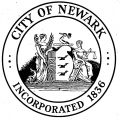According to the Bureau of Labor Statistics, the number of jobs for registered nurses (RNs) is expected to grow 19 percent from 2012 to 2022. Registered nurses are typically responsible for caring for patients and dispensing medication, although they might also work in schools, prisons, and other settings. To qualify for licensure in New Jersey, RNs must complete an accredited pre-licensure program such as an associate’s or bachelor’s degree, and they must pass the NCLEX-RN qualifying exam.
New Jersey
We've organized a comprehensive list of New Jersey nursing schools. Below you'll find information on specific nursing programs such as LPN certificates and ADN, BSN, and MSN degrees. You'll also find a profile of nursing education and careers in each major New Jersey city.



